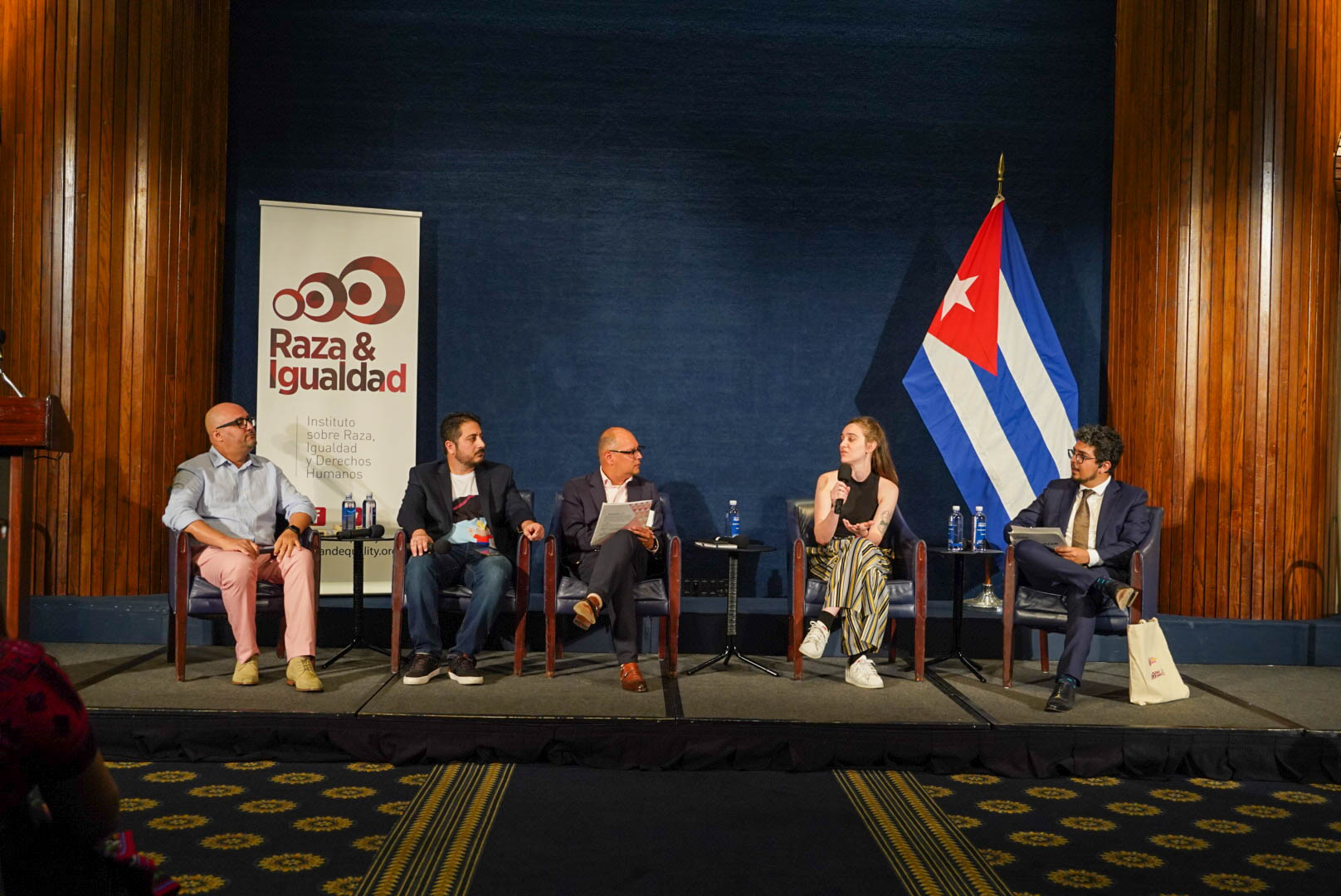“In Cuba there is no social tolerance for censorship”: IACHR
Washington D.C., June 22, 2023 – On Tuesday, June 20, 17 art pieces by Cuban graphic artists were exhibited, as part of ‘At Pen Point’, an exhibition that captures and […]

Washington D.C., June 22, 2023 – On Tuesday, June 20, 17 art pieces by Cuban graphic artists were exhibited, as part of ‘At Pen Point’, an exhibition that captures and denounces the human rights violations registered on the Island. The exhibition was accompanied by a discussion entitled ‘Graphic Humor, Art and Satire in the Face of Social Protests and the Human Rights Crisis in Cuba’, which took place at the National Press Club, in Washington D.C. The event was co-organized with the multimedia platform El Toque, and took place within the framework of the 53rd session of the General Assembly of the Organization of American States (OAS).
When discussing how art has served to reject repression on the Island, the Special Rapporteur for Freedom of Expression of the Inter-American Commission on Human Rights (IACHR), Pedro Vaca, assured that in this country “there is no social tolerance for censorship.”
“Art usually walks on the edge of collective self-censorship. Verbalizing, writing, capturing… What many want to say can imply tremendous levels of fear of retaliation. That is why art fills us with hope when it is capable of reflecting something that people collectively want to say: a stifled cry that reflects a citizen’s feeling,” said the rapporteur, acknowledging that artists in Cuba continue to denounce the human rights violations registered in this territory, despite repression, harassment, arbitrary detentions and short-term disappearances.
Vaca also recalled singer Maykel Castillo Pérez, better known as ‘El Osorbo’, and artist Luis Manuel Otero Alcántara, who remain in prison for exercising their right to freedom of expression. And he stated that, since 2021, at least 22 members of the San Isidro Movement have been beneficiaries of precautionary measures in an attempt by the IACHR to protect their rights.
For his part, the director of El Toque, José Nieves, said during his intervention in the conversation that “humor can be an extremely useful tool for public debate. The symbolic irreverence of humor, which takes politicians out of their pedestal and comfort zone, is a new form of struggle.”
Cuban visual artist and columnist Camila Lobon, who was also part of the panel, recalled that, in Cuba, with the entry of the Internet, its inhabitants found a tool to know what is happening in their territory, and thus build a narrative from art. “Cuban artists have been able to show and launch to the world a new type of activism that has made the country’s reality visible,” she added.
The lack of guarantees for Cuban citizens to exercise their right to freedom of expression not only affects Cuban artists, but also those who work as journalists in Cuba. Independent journalist Orelvys Cabrera affirmed during his contribution in the conversation that freedom of the press has not existed on the island for many years.
“Cuban independent journalists are persecuted, threatened, and harassed so that we hide the reality of journalism. At all times we work under persecution making us feel like war correspondents”, he pointed out.
From the Institute on Race, Equality and Human Rights (Race and Equality) we echo the words and testimonies of the people who participated in the discussion on how Cuban art has served to denounce human rights violations in this country. Also, we reiterate our request to the State of Cuba to guarantee the human rights of its inhabitants, including freedom of expression. We demand an end to repression and harassment against artists and journalists on the Island, who through their work question the decisions of Cuban authorities, and reflect the reality of the Cuban people.
Rewatch the event here:

